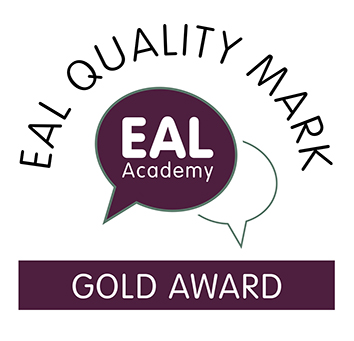What do you need most in a three form of entry primary school where 20% of the pupils come from Japanese backgrounds? How about a Japanese speaking headteacher? Of course, that is not very likely. However, at West Acton Primary School that is exactly what there is. Japanese parents told me how much they valued headteacher Karen Kondo’s “kindness, listening and bilingual conversation.” The Arabic, Farsi, Spanish and Ukrainian speaking parents I spoke to were also very happy with the translation support they receive from staff and with their children’s education. By the way, it may well be the only primary school in the country to employ three Japanese speaking SMSAs.
Both parents and pupils speak highly of the school’s buddy system and the well targeted support for new arrivals. Over 10% of current pupils are early stage EAL learners who have joined the school in the last twelve months, with Japanese and Arabic being the most widely spoken languages. All of these pupils have received some support from an EAL specialist delivering phonics and literacy interventions, including reading support before the school day starts.
All learners, including more advanced EAL learners, benefit from the widespread use of visual knowledge organisers and recall grids. The increasing use of translation tools and dual language texts is much appreciated by EAL pupils and was frequently mentioned to me by teachers. The pupils I spoke to are also confidently asking for more dual language texts. In mathematics lessons I saw very well organised talk that developed understanding, communication skills and more complex subject vocabulary. West Acton Primary walks the talk when it comes to collaborative learning. The pupils do it, the teachers do it and the parents understand why it is important.
The school also believes in continuous improvement. The most recent initiative is to become a Voice 21 Oracy School. For West Acton, that means multilingual oracy.
https://www.westactonprimaryschool.org/home
EAL in Acton schools
The EAL Quality Mark is based on a school’s self-evaluation of its EAL provision. It is an award made to schools on their achievements in meeting the needs of pupils learning English as an additional language.
It is available as a bronze, silver or gold award, allowing schools the opportunity to re-visit the award and build on their practice over time. Any school with pupils on roll who are learning English as an additional language is eligible to apply.

Extended online EAL course
New cohorts launched every term
Requiring approximately 90 hours to complete over a six month period, our extended EAL online course provides the opportunity to examine a range of EAL issues in detail, studying at times that suit your schedule. With 4 core units and 2 electives, you can tailor the cross-phase course to suit your interests and the needs of your school.

Leading EAL in primary schools
Online course
This 12-hour course aims to develop the leadership of EAL in primary schools where there are increasing numbers of pupils learning English as an additional language. Focusing on a whole school approach, the course provides guidance on how to plan and prioritise provision for a range of EAL learners.


